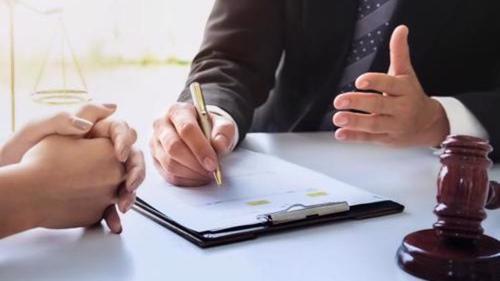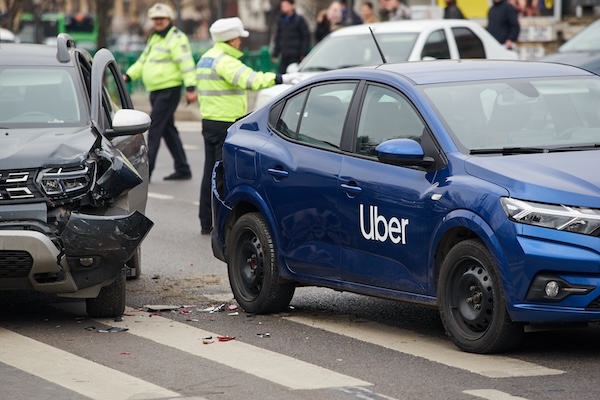Defining Police Brutality: Excessive Force, Deadly Force, and Misconduct
Police brutality refers to the use of excessive force by law enforcement officers. This can include physical violence, verbal abuse, and other forms of misconduct. Excessive force occurs when officers use more physical power than necessary to handle a situation. Deadly force is the most severe type of brutality, often resulting in serious injury or death. Misconduct can encompass a range of behaviors, including racial profiling, false arrests, and failure to provide medical care. Understanding these definitions is essential for recognizing instances of police misconduct and rights violations.

Recognizing Patterns of Police Abuse of Power
Police abuse of power often follows recognizable patterns. Many victims report similar experiences, such as being stopped without cause or subjected to aggressive tactics during routine interactions. These patterns can indicate systemic issues within a department, highlighting the need for accountability. Communities may see repeated incidents of violence or harassment, which can lead to a breakdown of trust between law enforcement and the public. Recognizing these patterns is crucial for victims and advocates working to challenge police misconduct and promote justice.
By understanding the nuances of police brutality, victims can better navigate their situations. This knowledge serves as a foundation for seeking legal representation and pursuing claims against law enforcement. When victims are informed, they can take proactive steps to protect their rights and hold officers accountable for their actions.
The Need for Immediate Legal Action

When faced with police brutality, taking swift legal action is vital for several reasons. Victims must prioritize their health and well-being while also ensuring that their rights are protected.
Importance of Seeking Medical Attention and Documenting Injuries
First and foremost, seeking medical attention is crucial. Injuries sustained during an incident of police violence should be treated immediately. Medical records serve as vital evidence in any legal claim. Documentation of injuries can include photographs, medical reports, and witness statements. This evidence will help establish the extent of harm and can significantly strengthen your case.
Filing Formal Complaints with Internal Affairs or Civilian Boards
In addition to seeking medical care, victims should file formal complaints with internal affairs or civilian oversight boards. This process can initiate an investigation into the incident and may hold officers accountable for their actions. Filing a complaint can also create a paper trail that supports your claim of police misconduct.
Taking these steps not only aids in your recovery but also contributes to the larger effort of holding law enforcement accountable for their actions. The sooner you act, the better your chances of achieving justice and compensation for the rights violations you experienced.
Role of a Police Brutality Lawyer

When facing the aftermath of police brutality, having a dedicated lawyer is essential. These legal professionals play a vital role in advocating for victims and ensuring their rights are upheld.
Navigating Legal Complexities and Protecting Victims’ Rights
Police brutality cases can be complicated. A skilled lawyer understands the intricacies of the law and how it applies to each unique situation. They work to protect victims’ rights from the outset. This includes gathering evidence, filing necessary paperwork, and ensuring all legal procedures are followed correctly. A lawyer will also help victims understand their rights throughout the process, providing clarity in a challenging time.
Assessing Case Viability and Advising on Legal Actions Against Police
Not every incident of alleged police misconduct leads to a successful lawsuit. A police brutality lawyer assesses the viability of a case early on. They examine the details surrounding the incident, including eyewitness accounts, police reports, and any available video evidence. This evaluation helps determine whether legal action is appropriate. If a case is deemed viable, the lawyer will guide victims on the best course of action, whether that involves filing a formal complaint or pursuing a lawsuit against the police department.
With a strong legal representative, victims can feel empowered to seek justice, knowing they have someone in their corner fighting for their rights and well-being.
Preventing Self-Incrimination and Protecting Rights
When dealing with police interactions, it is essential for victims of police brutality to understand their rights. One key aspect is the right to remain silent. This right is crucial because anything said during questioning can be used against you in court. Therefore, it is advisable to refrain from making statements without legal representation present.
Importance of Remaining Silent and Requesting Legal Advice for Victims
Remaining silent can protect you from self-incrimination. If you find yourself in a situation where law enforcement is questioning you, it is wise to clearly state that you wish to remain silent and request an attorney. This approach helps prevent misunderstandings and ensures that your rights are upheld. A civil rights attorney can provide valuable guidance during this stressful time, helping you understand the implications of any statements you might make.
Ensuring Fair Treatment During Police Interactions
Fair treatment during police encounters is a fundamental right. Victims should be aware that they can assert their rights if they feel they are being treated unfairly. This includes the right to ask for the presence of a lawyer and to refuse to answer questions until legal counsel is available. Remember, your safety and rights matter. If you experience any form of police misconduct, documenting the incident and seeking legal representation as soon as possible can be vital in pursuing justice.
By understanding these rights and taking the necessary precautions, victims can better navigate the challenges associated with police brutality cases and work towards securing the justice they deserve.
Types of Legal Claims and Compensation
When dealing with police brutality, understanding the types of legal claims available is essential. Victims of police misconduct can file claims to seek justice and compensation for the harm they have suffered. One of the primary avenues for these claims is through Section 1983 of the Civil Rights Act.
Filing Police Brutality Claims Under Section 1983
Section 1983 provides a way for individuals to sue state and local officials for violating their constitutional rights. This law is crucial for victims of police brutality, as it allows them to hold officers accountable for excessive force, false arrests, and other misconduct. To succeed in a Section 1983 claim, the victim must prove that the officer acted under the color of law and violated their rights.
Potential Compensation
Victims of police violence can seek various forms of compensation. This may include:
- Medical Expenses: Victims often face significant medical bills due to injuries sustained during the incident. Compensation can cover hospital stays, surgeries, therapy, and ongoing treatment.
- Lost Wages: If the victim is unable to work due to their injuries, they may claim lost wages. This includes both past and future earnings affected by the incident.
- Punitive Damages: In cases where the police acted with malice or reckless disregard for the victim’s rights, punitive damages may be awarded. These damages aim to punish the officers and deter similar conduct in the future.
Conclusion
Understanding the types of legal claims available and the potential for compensation is vital for victims of police brutality. Seeking the assistance of a knowledgeable police accountability lawyer can help navigate this process. They can provide the necessary support to ensure victims receive the justice and compensation they deserve.
Investigative and Evidence Gathering Process

In police brutality cases, a thorough investigation is essential. This process involves gathering evidence and building a strong case for the victim. A well-prepared case can significantly impact the outcome of legal proceedings.
Conducting Thorough Investigations
The first step in the investigative process involves reviewing police reports and any available video footage. These documents can provide crucial insights into the incident, including the actions of the officers involved. Additionally, interviewing witnesses is vital. Eyewitness accounts can help establish a clearer picture of what transpired, providing context that may not be captured in official reports.
Analyzing Medical Records
Medical records play a significant role in police misconduct lawsuits. They document injuries sustained during the incident and can serve as evidence of excessive force. A skilled brutality victim lawyer will analyze these records to identify the extent of injuries and correlate them with the incident. This analysis can strengthen the victim’s claim by showcasing the physical and emotional toll of the abuse.
Gathering Additional Evidence
Beyond reports and medical records, other forms of evidence can bolster a case. This may include photographs of injuries, statements from medical professionals, and records of any psychological impact. Collecting this information early in the process is critical. It ensures that the evidence is fresh and credible, making it more likely to be accepted in court.
Importance of a Systematic Approach
A systematic and organized approach to evidence gathering can make a difference in the outcome of a case. Each piece of evidence contributes to the overall narrative of the victim’s experience and can help establish a pattern of police misconduct. By leaving no stone unturned, victims can build a compelling case that holds law enforcement accountable for their actions.
In summary, the investigative and evidence gathering process is a cornerstone of any police brutality case. It requires diligence, attention to detail, and a commitment to justice. With the right legal representation, victims can navigate this process effectively and work towards securing the compensation they deserve.
Legal Strategies and Representation
When pursuing justice for victims of police brutality, effective legal strategies are essential. A skilled police brutality lawyer plays a vital role in preparing cases for trial and negotiating settlements. Here’s how they can make a difference.
Preparing Cases for Trial
A thorough preparation process is critical for success in police brutality cases. Lawyers gather evidence, interview witnesses, and compile necessary documentation. This meticulous approach strengthens the case, making it more compelling in court. The lawyer will also develop a clear narrative that outlines the events leading to the incident, highlighting police misconduct and any rights violations.
Negotiating Settlements
Not all cases go to trial. Many victims opt for settlements to avoid the uncertainties of court proceedings. A competent lawyer understands the nuances of negotiation. They will advocate for fair compensation by leveraging their knowledge of previous cases and the potential outcomes. This negotiation process can lead to satisfactory results for victims, ensuring they receive the compensation they deserve without the stress of a trial.
Providing Aggressive and Compassionate Representation
Legal representation in police brutality cases requires a balance of aggression and compassion. Victims often face emotional and physical challenges as they seek justice. A dedicated lawyer will not only fight vigorously for their clients’ rights but also provide the support needed throughout the process. This dual approach helps build trust and fosters a strong attorney-client relationship.
Justice for Brutality Victims
Ultimately, the goal of legal representation in police misconduct cases is to achieve justice for victims. This includes holding law enforcement accountable for their actions and ensuring that victims receive appropriate compensation for their suffering. With the right legal strategies and representation, victims can navigate the complexities of the justice system and work towards a resolution that acknowledges their pain and promotes accountability.
Statutes of Limitations and Timing
Understanding the statutes of limitations is essential for anyone considering legal action in police brutality cases. These laws set specific timeframes within which a victim must file a lawsuit. Missing these deadlines can result in losing the right to seek justice and compensation.
Awareness of Filing Deadlines for Misconduct Lawsuits
Each state has its own statutes of limitations for civil rights claims, including those related to police misconduct. Generally, these time limits can range from one to three years, depending on the jurisdiction and the nature of the claim. For example, in many states, you have three years to file a lawsuit under Section 1983 for violations of constitutional rights. However, some states may have shorter deadlines for filing police brutality claims.
It is crucial to research the specific deadlines applicable to your case. Failing to file within the required timeframe may lead to the dismissal of your claim, making it vital to act quickly after an incident of police brutality.
Importance of Timely Legal Actions Against Police
Timeliness in legal actions against police is not just about adhering to deadlines; it also plays a significant role in building a strong case. Early legal intervention allows for the collection of crucial evidence while it is still fresh. Witnesses are more likely to remember details shortly after the incident, and physical evidence can be preserved more effectively.
Additionally, timely actions can demonstrate the seriousness of the claim to law enforcement and the courts. This may lead to a more thorough investigation and potentially prompt changes in police practices that can prevent future misconduct.
In summary, being aware of the statutes of limitations and acting quickly after an incident of police brutality is essential. Seek legal representation as soon as possible to protect your rights and ensure the best chance of obtaining justice and compensation for your suffering.
Impact on Civil Rights and Police Accountability
Police brutality cases have far-reaching consequences that extend beyond individual victims. They play a crucial role in shaping civil rights and promoting police accountability. Understanding this impact is essential for both victims and society as a whole.
Challenging Unlawful Arrests and Reducing Prosecutions
When victims of police misconduct take legal action, they challenge unlawful arrests and the abuse of power. Successful lawsuits can lead to the dismissal of wrongful charges against individuals. This not only helps the victims but also sends a clear message to law enforcement agencies that misconduct will not be tolerated. When officers know they can be held accountable for their actions, it may deter future violations.
Identifying Patterns of Misconduct to Promote Police Accountability
Legal representation in police brutality cases also aids in identifying patterns of misconduct. By collecting and analyzing data from various cases, attorneys can reveal systemic issues within law enforcement agencies. This information is vital for advocating for policy changes and better training for officers.
As more victims come forward, it becomes easier to spot trends in police behavior. This collective data can be used to push for reforms that enhance accountability and protect civil rights. The goal is to create a safer environment for everyone, where police officers act within the bounds of the law and respect the rights of all individuals.
In summary, the impact of police brutality cases extends beyond individual claims. They challenge unlawful practices, reduce wrongful prosecutions, and help identify patterns of misconduct that can lead to significant reforms. By pursuing justice, victims not only seek redress for their suffering but also contribute to a broader movement for police accountability and civil rights protection.
We Can Help With Your Police Brutality Case

If you or a loved one have been a victim of police brutality, it’s critical to take immediate steps to protect your rights and seek justice.
The emotional and physical impact of such incidents can be overwhelming, but you don’t have to face this fight alone.
Contact The Super Lawyer today for expert legal guidance and compassionate support. Our dedicated team is committed to holding accountable those who have violated your rights and ensuring you receive the justice and compensation you deserve. Schedule a free consultation with us by calling 404-574-4308 to explore your legal options and begin your journey toward recovery and justice.



